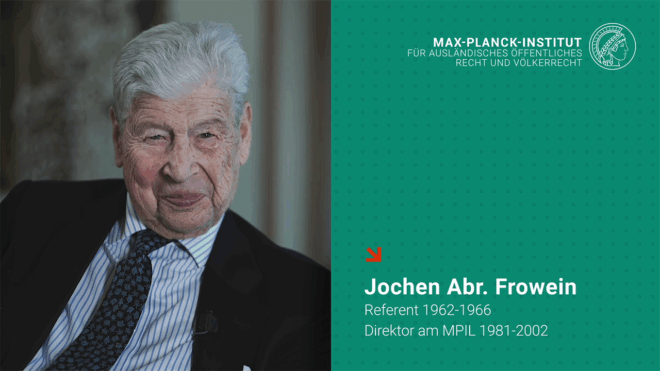In this MPIL100 Conversation with Philipp Glahé and Robert Stendel, director emeritus Jochen Abr. Frowein recounts his history at the Institute, as senior research fellow and director, and the front-row seat to history his positions afforded him—from advising on Willy Brandt’s groundbreaking Ostpolitik treaties in Moscow and Warsaw to steering the European Commission of Human Rights through turbulent times. He delves into legal-intellectual battles at the Max Planck Institute, where his controversial thesis on the GDR as a “de facto regime” challenged orthodoxies and helped pave the way for German reunification. With candor, Frowein reflects on bridging academia and diplomacy, offering a master class on the ways principled scholarship can reshape nations and norms.
About Jochen Abr. Frowein
Professor Jochen Frowein is one of Germany’s leading experts in public international and constitutional law. Director of the Max Planck Institute for Comparative Public Law and International Law (MPIL) from 1981 through 2002 and professor at Uni Heidelberg, he authored over 400 publications, including standard references on the European Convention on Human Rights and the status of aliens in law.
Beyond academia, Frowein shaped policy as a negotiator of the 1970 Moscow and Warsaw Treaties and as a longtime member and Vice-President of the European Commission of Human Rights. He also served as Vice-President of both the German Research Foundation and the Max Planck Society, and was a member of the EU “Three Wise Men” tasked with assessing Austrian sanctions in 2000.
Frowein’s global recognition includes election to the Institut de Droit international, vice-presidency of the International Commission of Jurists, several honorary doctorates, and Germany’s Officer’s Cross of the Order of Merit.



Pingback: Tradition und Kontinuitäten der Institutsforschung am Beispiel des Klimaschutzes – MPIL100